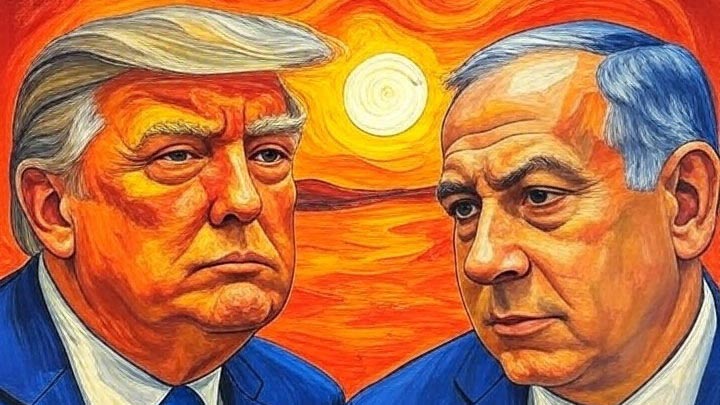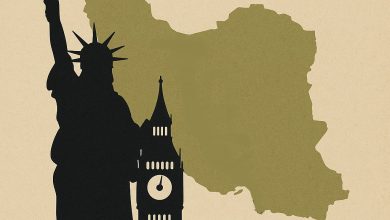Consequences of the Trumpist–Netanyahu Far-Right for Liberalism, Jewish Identity, Israel’s Legitimacy, and Global Peace

The rise and consolidation of far-right politics in the form of Trumpism in the United States and Netanyahuism in Israel reflects a deep geopolitical and ideological transformation in the contemporary international order. The convergence between these two movements has had complex and multidimensional consequences, not only in the domestic politics of their respective countries but also on a global scale. This article explores the implications of this radical alliance in four key areas—liberalism, Jewish identity, the legitimacy of Israel, and global peace—highlighting the crisis-prone and destabilizing nature of this political project.
- Implications for Liberalism
Erosion of Institutional Democratic Foundations
Trumpism and Netanyahuism, both exhibiting anti-institutional tendencies, have actively undermined the core pillars of liberal democracy, including judicial independence, a free press, and regulatory institutions. Systematic disregard for legal norms and constitutional conventions has led to a gradual erosion of classical liberal values.
Rise of Populism and Political Polarization
With a strong emphasis on identity politics and a binary “us vs. them” narrative, these movements have hollowed out the possibility for rational consensus in the public sphere. Tolerance, as a central tenet of liberalism, has been marginalized, while extremist and anti-elitist discourses have created hostile, non-dialogical public environments.
Undermining the Liberal International Order
Unilateralist policies, such as Trump’s withdrawal from multilateral agreements and disregard for international institutions, coupled with unconditional support for Israel, have seriously challenged the liberal world order founded on multilateralism, human rights, and international cooperation.
- Implications for Jewish Identity
Reducing Judaism to State Zionism
Netanyahu and his right-wing allies have sought to equate Jewish identity with unwavering support for the Israeli state. This approach negates the religious, cultural, and political pluralism inherent in Judaism and replaces epistemic diversity with ideological monologue.
Marginalization of Progressive and Critical Judaism
Jewish groups that are liberal, secular, or anti-Zionist and critical of Israeli policies have been systematically excluded from mainstream discourse. This exclusion has deepened identity rifts within the global Jewish community, threatening its social cohesion and historical solidarity.
Fueling Antisemitism and Anti-Americanism
The convergence of radical Israeli and American policies has triggered a new wave of antisemitism, often expressed through opposition to Israeli and U.S. actions. This backlash has endangered the safety of Jewish communities worldwide and contributed to a crisis of legitimacy for global Jewish identity.
- Implications for the Legitimacy of Israel
Decline of Moral and Legal Legitimacy
Israel’s expansionist policies, including illegal settlements, the Gaza blockade, and disproportionate use of force against civilians, have drawn widespread legal and ethical condemnation. These actions have significantly eroded Israel’s moral standing in global public opinion.
Departure from Liberal Democratic Standards
Netanyahu’s alliance with far-right, religious, and racist factions—such as the “Jewish Power” party—has distanced Israel from core liberal democratic values like legal equality and pluralism, pushing the country toward an institutionalized regime of discrimination.
Gradual International Isolation
Despite Trump’s unwavering support, most of the global community—including liberal European democracies—has adopted a critical stance toward Israel’s treatment of Palestinians. UN General Assembly resolutions in favor of a Palestinian state reflect the declining international acceptance of Israeli policies.
- Implications for Global Peace
Escalation of Regional Instability
Far-right politics in the U.S. and Israel, by sidelining the two-state solution and promoting unilateralism, have exacerbated regional tensions and conflicts across the Middle East. This has fueled hostility between states and non-state actors alike.
Arms Races and Regional Insecurity
Massive U.S. military support for Israel and constant confrontation with regional actors like Iran, Hezbollah, and Hamas have created a perpetual cycle of militarization and insecurity. Rather than promoting deterrence, this arms spiral has become a driver of chronic instability.
Deepening Civilizational Divides
From the perspective of theories like “Clash of Civilizations” and identity politics, the Trumpist–Netanyahu alliance has reinforced hostile cultural narratives such as Islamophobia and antisemitism. This has laid the groundwork for intensified inter-civilizational conflicts.
Conclusion
The political and ideological bond between far-right forces in the U.S. and Israel has not only hollowed out liberal democratic institutions domestically but has also precipitated a global crisis in values such as human rights, dialogue among civilizations, political legitimacy, and collective security. If this trajectory continues, it could lead to the resurgence of fascist elements and a revival of the dark memories of World War II—a threat that looms not only over Jewish communities but over the entire international order.






